Scouts on Home Front 1914-1918
Doing your bit!
By 1914, Scouts had been in existence for six years. Its popularity had spread not only in Britain but across the world.
Widespread membership meant many boys and young men had gained a range of useful skills, from field-craft and camp cooking, to signalling and sailing. Skills, which as the First World War broke out, would be put to very practical use.
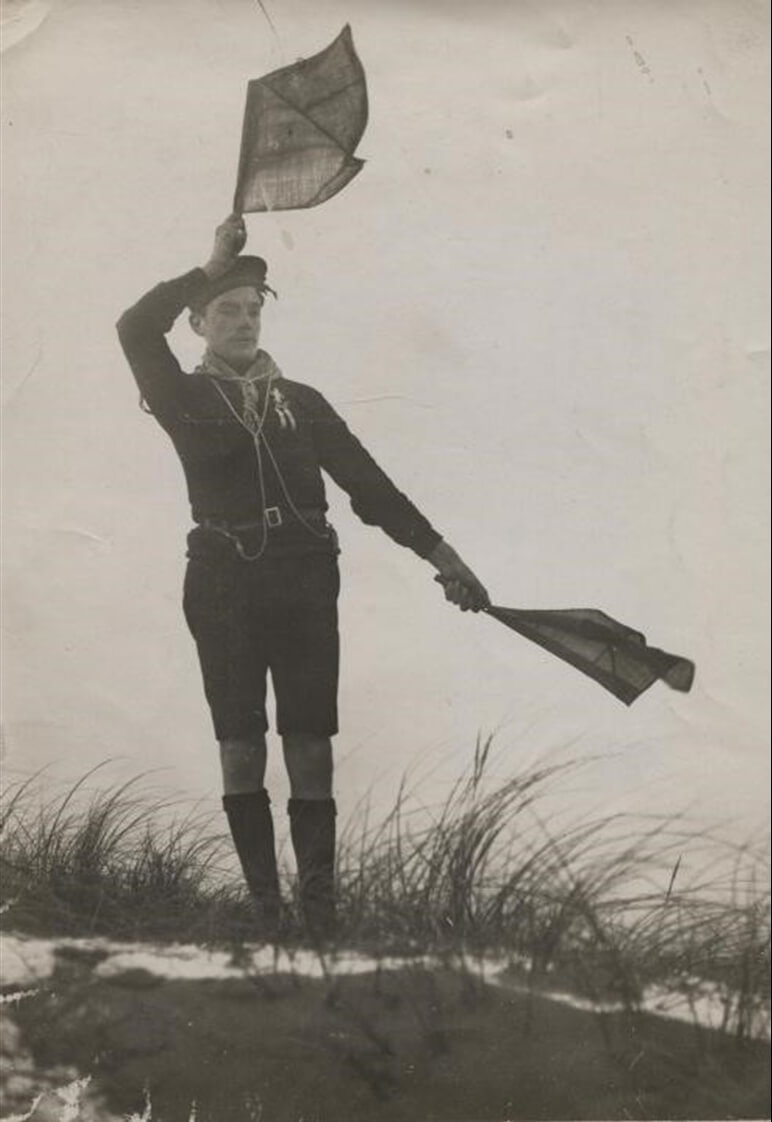
As Britain entered the war on 4 August 1914, Robert Baden-Powell considered how Scouts could support the war effort. Older Scouts and volunteers could join the Armed Forces.
Baden-Powell felt that the younger boys could also ‘do their bit’, not in a military role, but in supporting essential services. As the war progressed, the tasks the boys took on diversified. Scouts were seen to be playing a crucial role in supporting the war effort, as documented on posters.
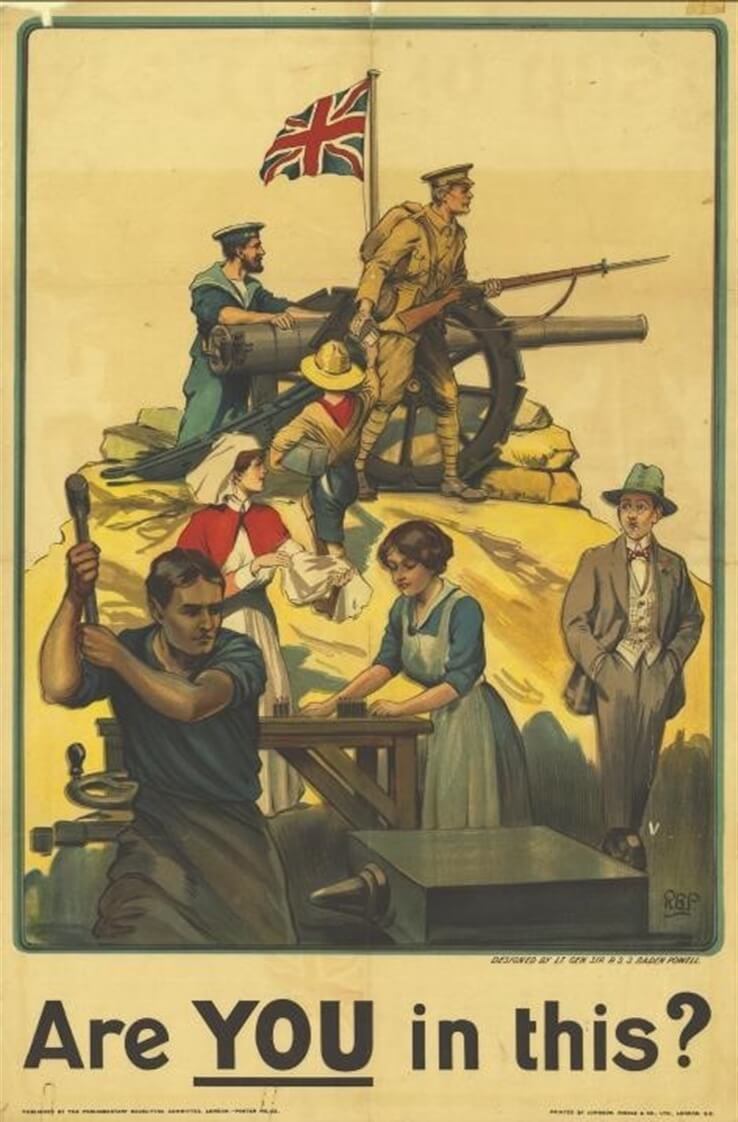
Guarding the shores
One of the first roles that Scouts undertook was supporting the Coastguard. The fear of invasion by Germany was a very real threat, so watching the coast, ports and estuaries was crucial work.
Scouts were supervised by the coastguard, but under the orders of their Patrol Leaders, and were responsible for their own activities and actions. This was a very practical example of one of Scouts’ core practices, giving young people independence. The Scouts responsibilities included coast watching, sending signals and delivering messages.
The Scouts weren’t paid, but received a basic subsistence allowance. At first, this work was undertaken by Sea Scouts, who specialised in water based activities. However, as word spread, other Scout groups volunteered to take to part.
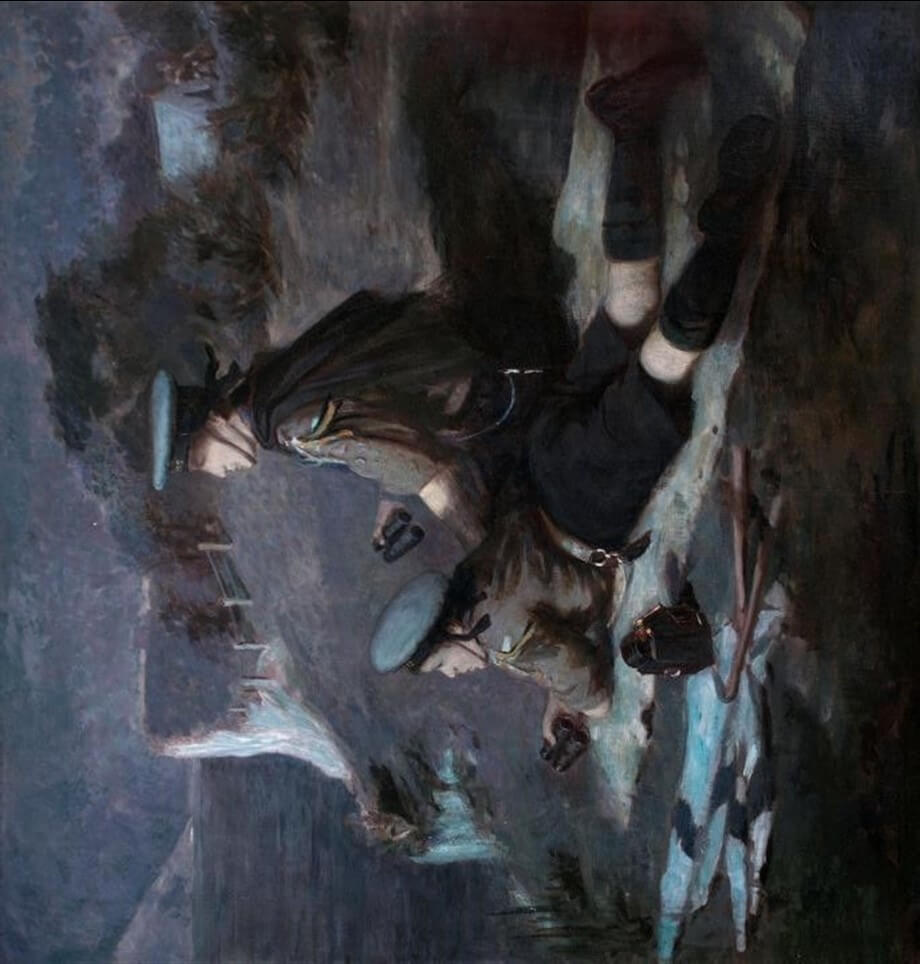
Working on the land
Many Scouts volunteered to work on farms, particularly around harvest time. Before the First World War, most farm work was done by hand and many men were employed on the land. As men left farming to join the Armed Forces, Scouts were able to take on some of the farm work.
Some troops from urban areas, such as the St Luke’s Mission Troop from Chelsea, adapted their summer camp into a working farm holiday.
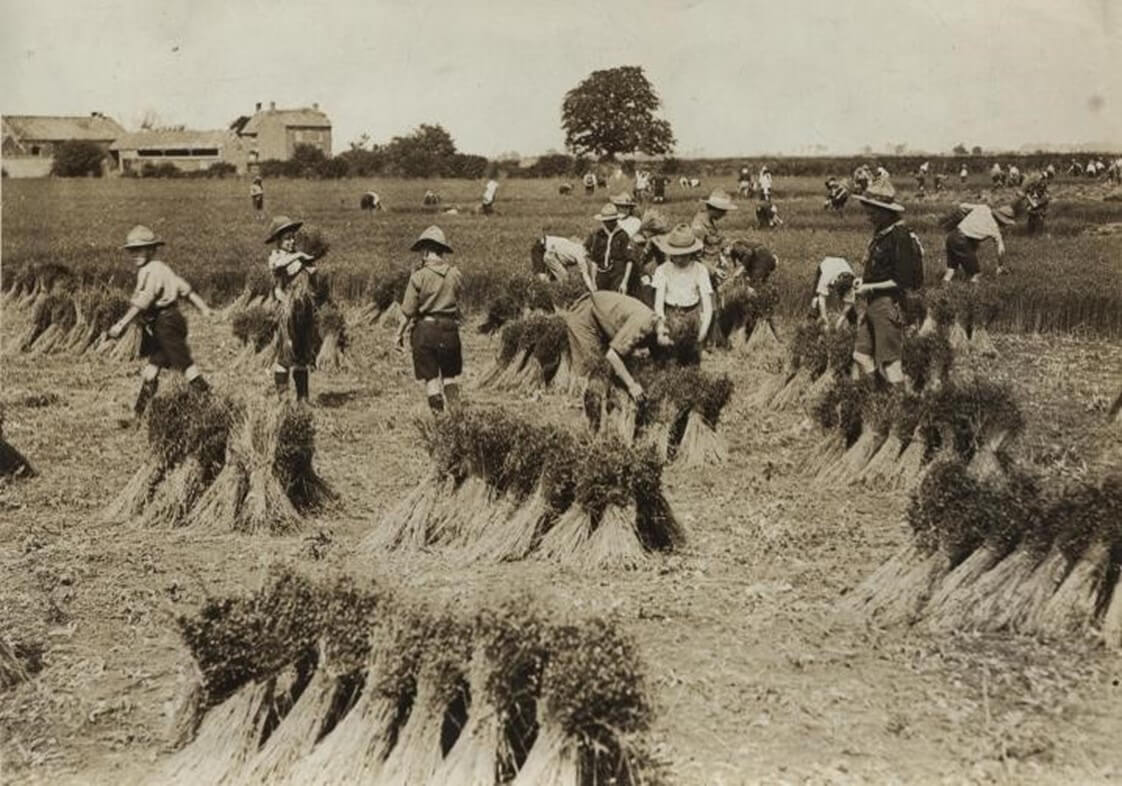
Food wasn’t the only resource which needed to be grown. Flax was a very important crop. Flax could be used to produce a tough canvas-like cloth that could be used for jobs, such as making tents, equipment, and even covering aircraft wings.
In August 1914, rural France was preparing to bring in the harvest. However, many farm workers had been called up to fight the oncoming German invasion. If the harvest wasn’t gathered in, the country faced serious food shortages. An appeal was issued for help to be sent over the channel to help with the harvest, with letters showing that many Scouts offered to help.
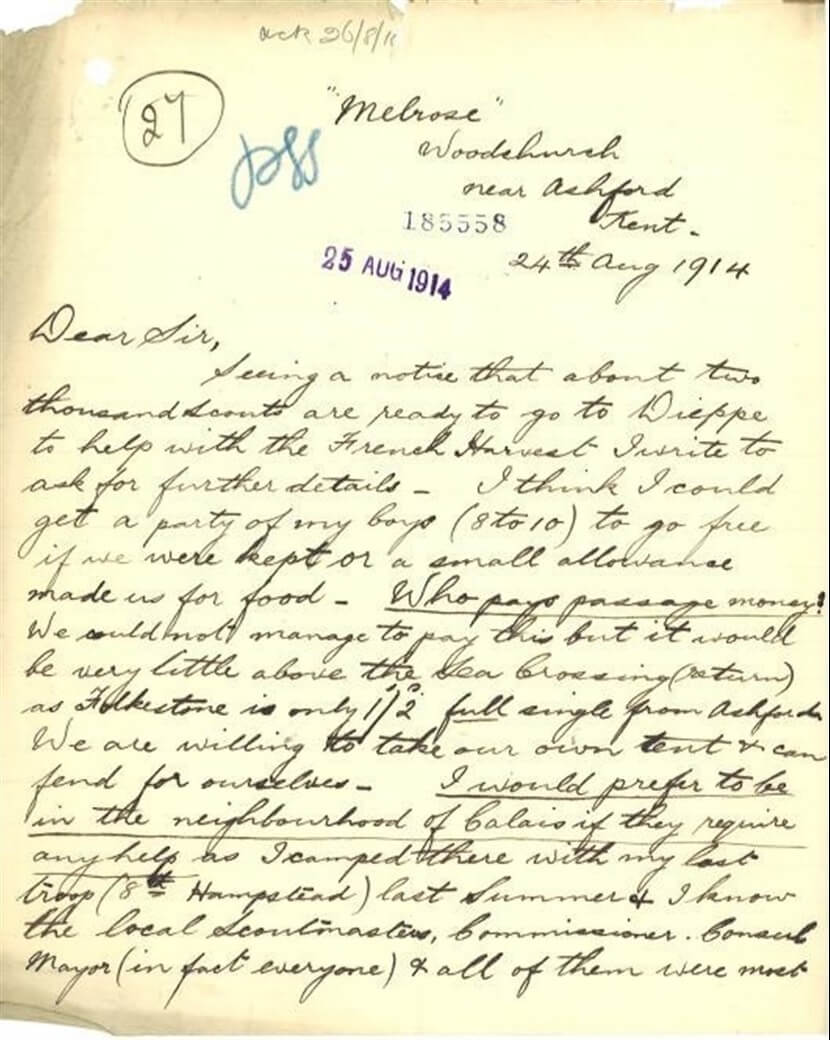
Every penny counts
A desire to support the Armed Forces saw the founding of the ‘Scout Hut and Ambulance’. The fund bought much needed ambulances, which ended up in service across the world. Just like Scouts today, during the First World War Scouts came up with some innovative ways of raising money. One Cub Pack spent a whole day collecting acorns, as these could be used in animal feed, and sold them, contributing the proceeds to the Fund. Scouts in Belfast raised over £600 by selling bottles, making a significant contribution to the fund.
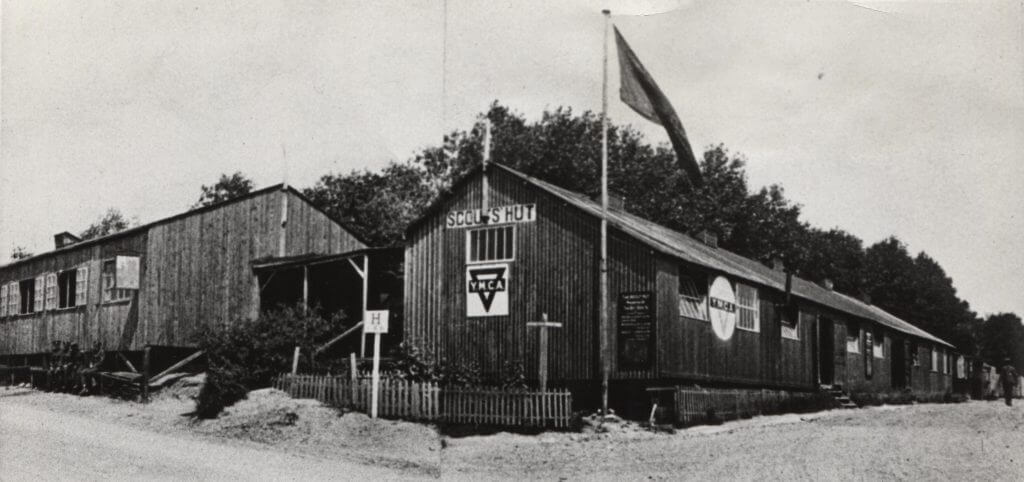
Working with other charities, such as the YMCA, Scouts bought and supported the running of huts at Army camps in Belgium, France, Italy and the UK.
The huts provided refreshments and entertainment and a place for men to relax when they weren’t involved in fighting at the Front. Many of the huts were staffed by former Scouts, and both Robert and Olave Baden-Powell also spent some time working in one of the huts.
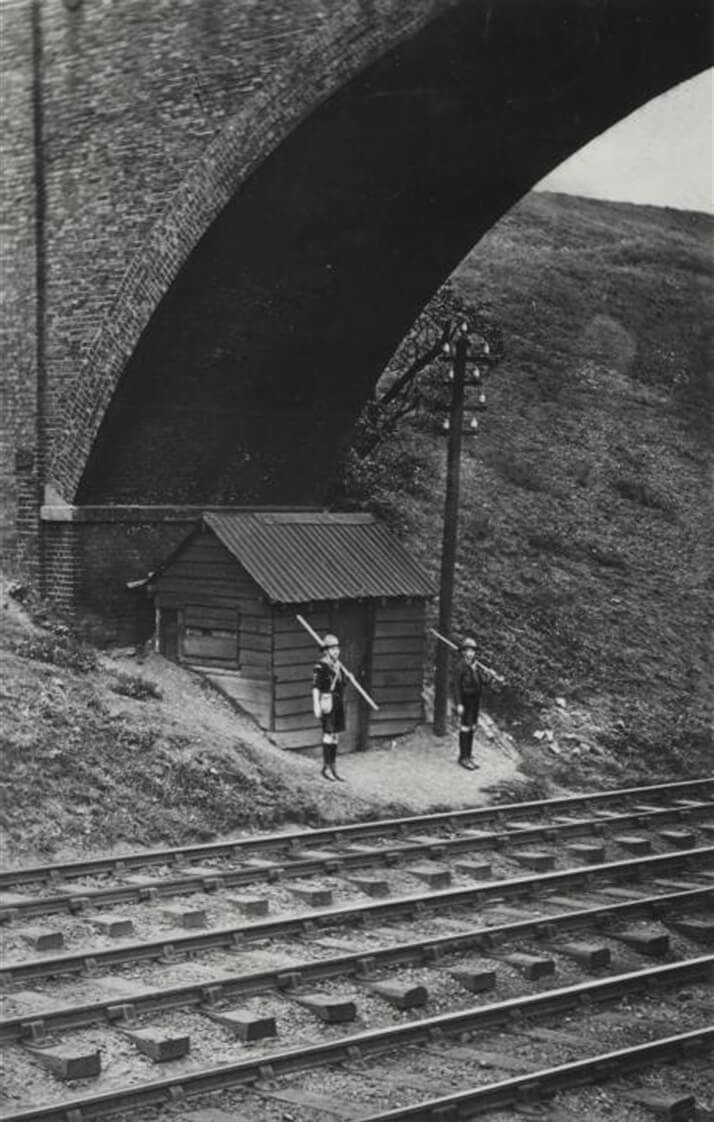
Pedal power
The role of messenger was very important in a time before mass telecommunications. In 1914, only a few homes or public buildings had telephones. Telegrams or letters were the main methods of communication and these had to be delivered by hand by messengers.
Messengers were stationed in places where messages may have to be urgently communicated, such as government offices, police stations and other key or important points. Messengers need to be healthy, strong, reliable and have a good sense of direction, which were criteria that many Scouts fulfilled.
Other duties
While farming, coast watching and carrying messages were the main tasks undertaken by Scouts, some groups were asked to take on other roles. This included guarding railway junctions, and telegraph and telephone cables against enemy sabotage.
Similarly to today, one of the early skills a Scout developed was First Aid. Scouts were asked to help care for the sick and injured of the Armed Forces, as well as civilians, caught up in attacks, such as naval bombardments and Zeppelin raids. They worked as stretcher bearers and performed basic First Aid, as required.
In 1914, the school leaving age was 12. This means many Scouts had to balance their war work with school attendance. Due to the crucial nature of the work, some schools allowed boys time off, however this wasn’t universal.
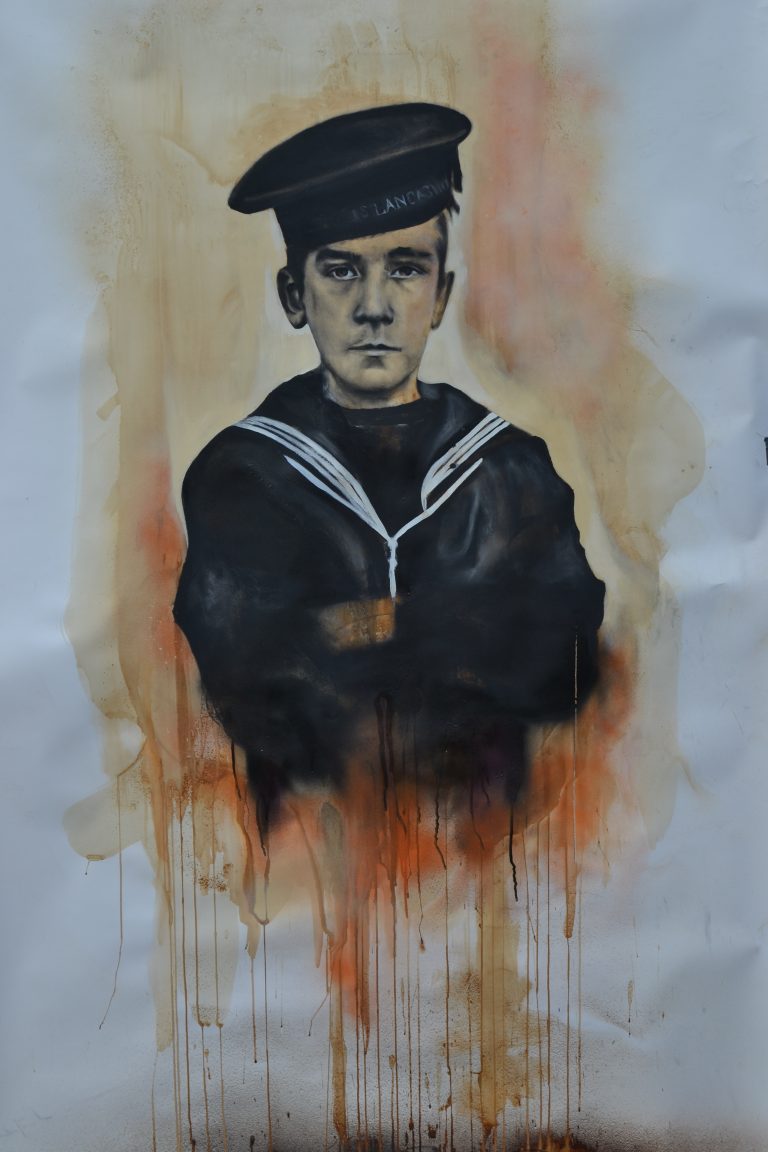
Bravery recognised
The bravery of Scouts undertaking war work on the Home Front, as well as those who had joined the Armed Forces, was recognised during the First World War.
Former Scouts were awarded at least 21 Victoria Crosses. The Victoria Cross is the highest military decoration awarded to members of the British and Commonwealth armed forces for valour ‘in the face of the enemy’.
It was the bravery of one former Scout, Jack (John Travers) Cornwell, that led to the development of Scouts’ highest award for bravery, the Cornwell Badge. It’s still in use today. Discover more about Jack’s story in the ‘Jack Cornwell: A True Scout’ exhibition.
Wolf Cubs in the First World War
A pilot for a junior section of Scouts called Wolf Cubs was launched in January 1914.
It proved an instant success recruiting 10,000 Cubs in the first year. In 1916, during the darkest days of the War, Scouts took the decision to formalise Wolf Cubs membership. The section continued to grow, meaning that by 1918 over 37,000 boys had joined. This success may in part be due to the unprecedented numbers of women, especially mothers, taking up jobs to help on the Home Front. Cubs would have been a perfect activity to keep young people occupied and safe after school.
Cubs played their part on the Home Front by knitting comforts for troops and stuffing pillows with newspaper. They also learned skills that would be helpful around the home, such as peeling vegetables, cleaning shoes and basic housework. You can learn more about Wolf Cubs and their co-founder Vera Barclay by visiting our online exhibitions.
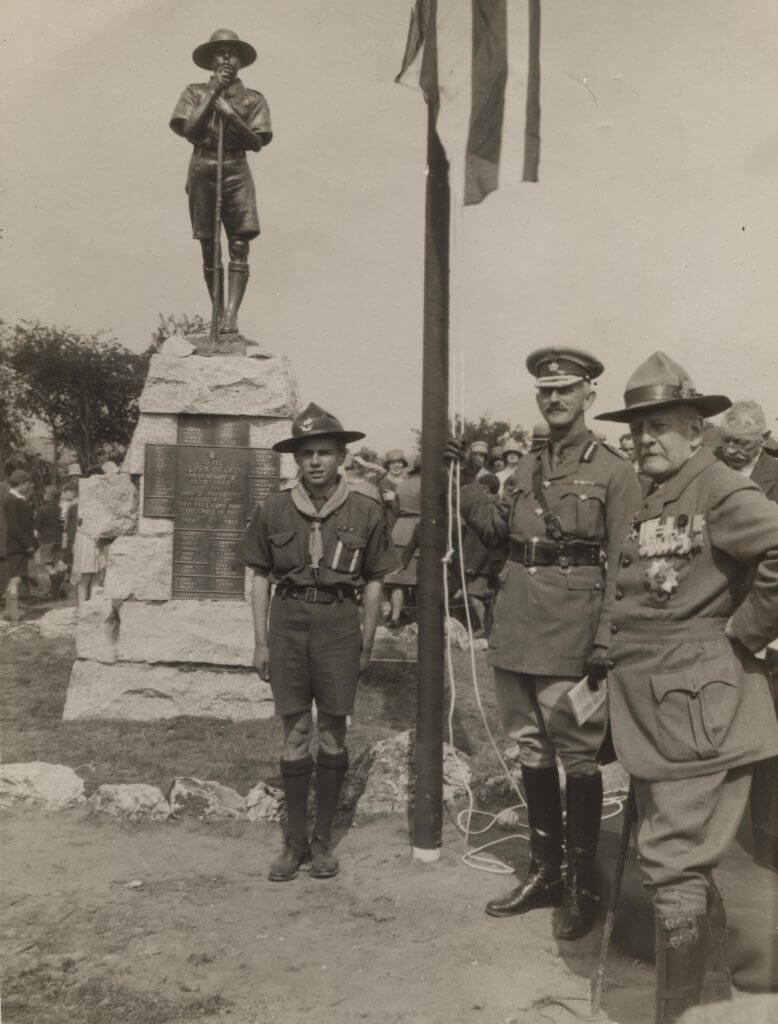
Recovery and remembrance
By the end of the First World War, Scouts had made an outstanding contribution to the war effort, both on the Home Front and in the Armed Forces.
It was a contribution that was recognised at the highest level by the then British Prime Minister, David Lloyd George. He stated: ‘It’s no small matter to be proud of, that the Association was able within a month of the outbreak of war to give the most energy and intelligent help in all kinds of service. When the boyhood of a nation can give such practical proofs of its honour, straightness and loyalty there is not much danger of that nation going under, for these boys are in training to render service to their country as leaders in all walks of life in the future.’
Sadly, Scouts suffered their own loss through the war. Over 84,000 former Scouts and adult members had enlisted in the Armed Forces. Around 8,000 of them were killed.
The 70 members of the district who were killed during the First World War.
The loss of these men, many of whom had been involved in Scouts from its earliest days was devastating to the Association and one that was replicated in Scout groups all over the world. However, the experiences gained by the Scouts, who had undertaken such important work during the war, meant that there was a new generation of adults ready to volunteer and to take on the responsibility of rebuilding and developing Scouts.
War Memorials were erected honouring those who had been killed. Every year since Scouts have taken part in acts of Remembrance to continue that commemoration.